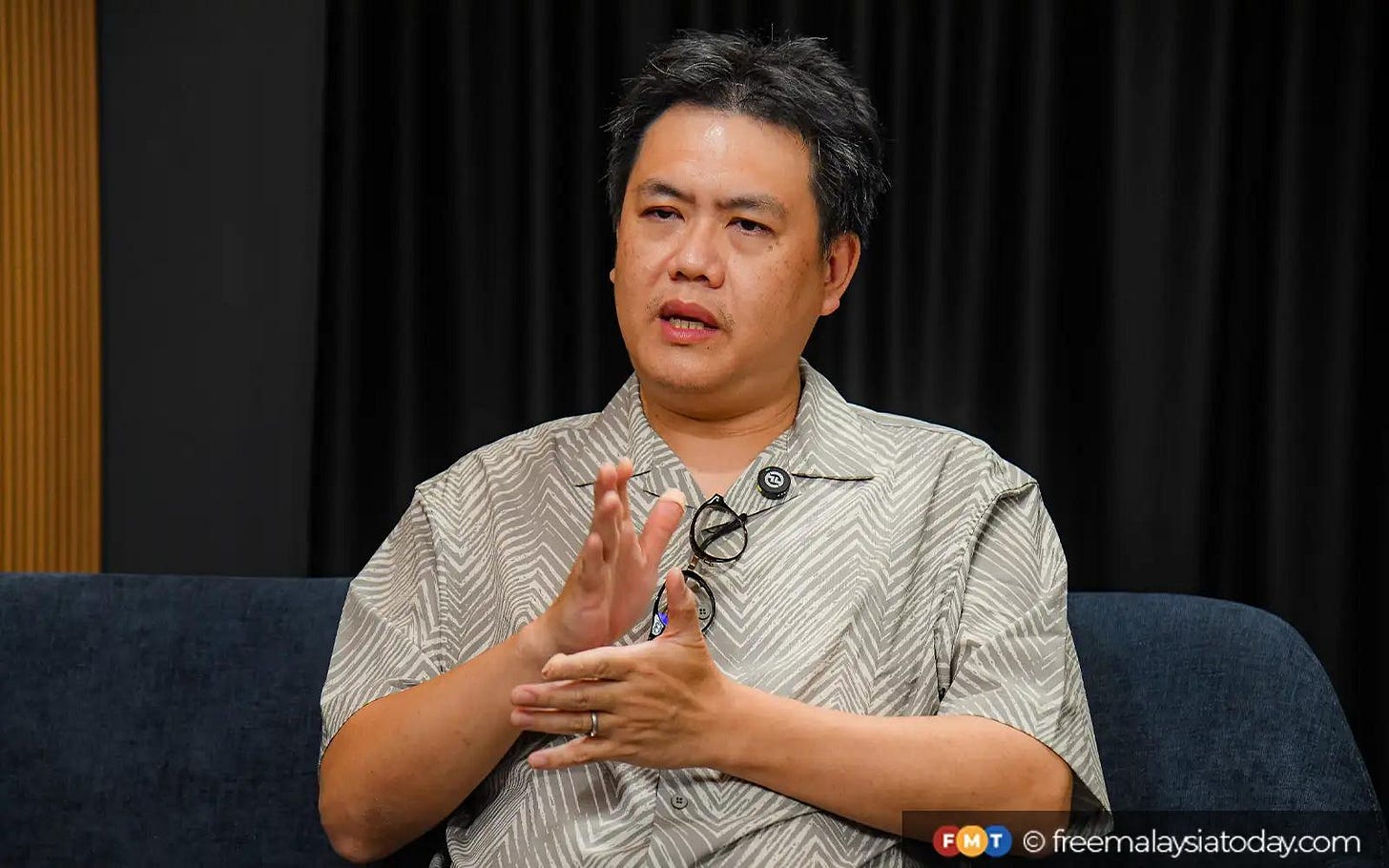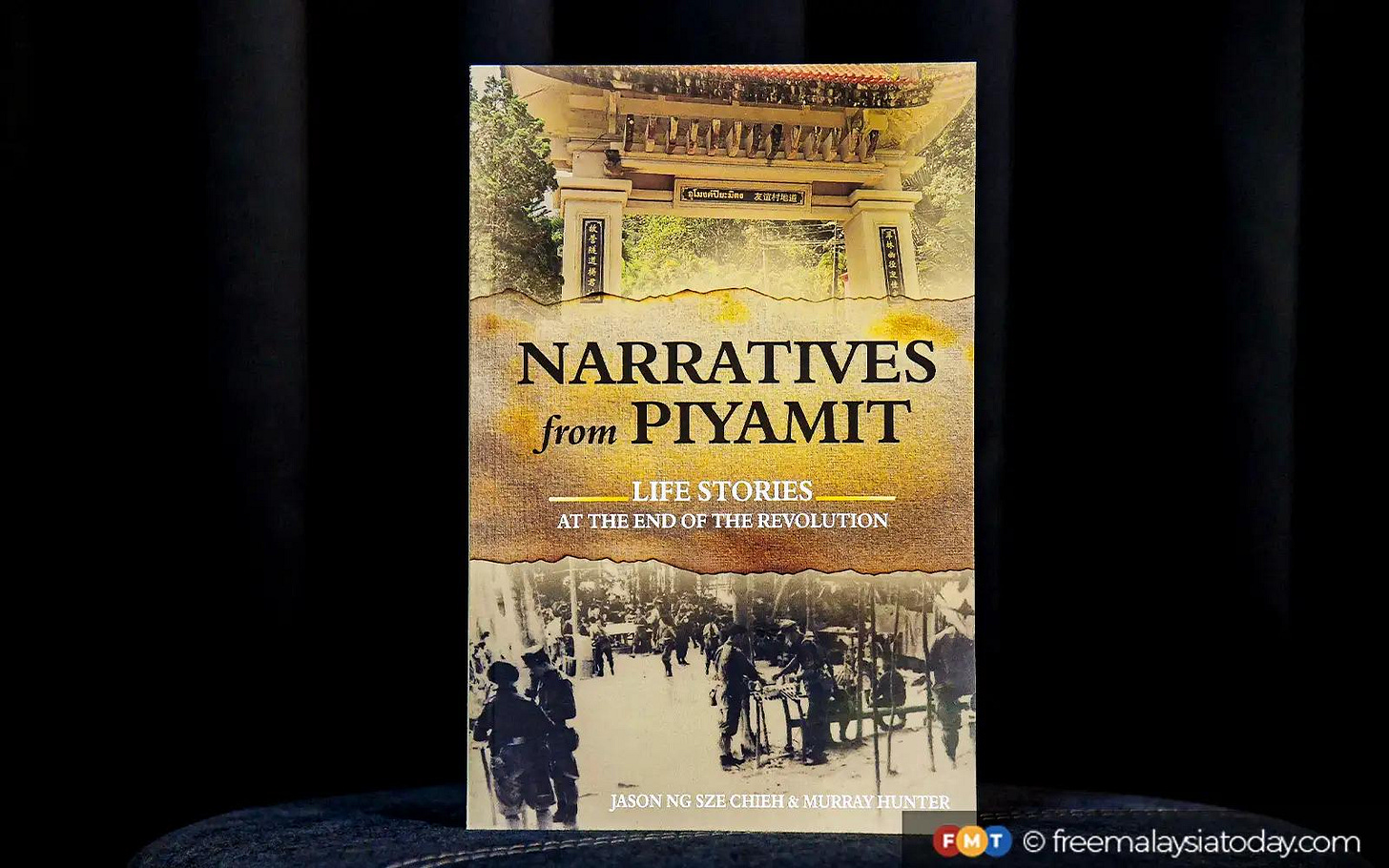
Murray Hunter
FMT: MCP infiltrated schools, workplaces to recruit members, says historian
Ng Sze Chieh details how the Malayan Communist Party covertly recruited members through schools and workplaces, channelling resources to its headquarters in southern Thailand
Apr 04, 2025

The Malayan Communist Party (MCP) had infiltrated schools and workplaces through underground agents to recruit members and secure resources before its dissolution in 1989, a historian claimed.
Ng Sze Chieh, an assistant professor at New Era University College, said that after the MCP was outlawed in 1948, the group survived by operating in the shadows.
“The MCP had always had underground members and branches since the 1930s in various forms. It had infiltrated trade unions, associations, schools and workplaces. That was their only way to survive.
“These agents funnelled resources and personnel to their headquarters in Betong in southern Thailand,” he told FMT in an interview.
Ng, who co-authored Narratives from Piyamit: Life Stories at the End of the Revolution with Murray Hunter, said his research found that many former guerillas had been active in student movements in vernacular Chinese high schools in cities like Kuala Lumpur.
He said underground agents were often their peers, and MCP-affiliated cells operated under the guise of tuition classes, charity work, or cultural events.
The agents would observe the students closely and identify potential recruits, he said.
Ng revealed that his mother was once invited to a “youth camp”, only to realise it was a propaganda session when organisers started discussing communist ideologies.

The Malayan Communist Party (MCP) had infiltrated schools and workplaces through underground agents to recruit members and secure resources before its dissolution in 1989, a historian claimed.
Ng Sze Chieh, an assistant professor at New Era University College, said that after the MCP was outlawed in 1948, the group survived by operating in the shadows.
“The MCP had always had underground members and branches since the 1930s in various forms. It had infiltrated trade unions, associations, schools and workplaces. That was their only way to survive.
“These agents funnelled resources and personnel to their headquarters in Betong in southern Thailand,” he told FMT in an interview.
Ng, who co-authored Narratives from Piyamit: Life Stories at the End of the Revolution with Murray Hunter, said his research found that many former guerillas had been active in student movements in vernacular Chinese high schools in cities like Kuala Lumpur.
He said underground agents were often their peers, and MCP-affiliated cells operated under the guise of tuition classes, charity work, or cultural events.
The agents would observe the students closely and identify potential recruits, he said.
Ng revealed that his mother was once invited to a “youth camp”, only to realise it was a propaganda session when organisers started discussing communist ideologies.

“My mother had a shock when she was there, and she immediately excused herself to go home. She left that night. She was so afraid that the police were going to raid the place.
“When school resumed after the weekend, she noticed one of her friends who went to the camp had disappeared. She later discovered that the person had ‘gone up to the hills’ (joined the guerilla movement),” he said.
In the book, former MCP cadre Li Xin recalled how anti-government sentiment was high in Chinese high schools because of the government’s efforts to nationalise them.
“MCP’s influence was strong within these schools. Many of us who went up the hills were secondary school students, (about) 15 or 16 years old,” she said.
Published by Gerakbudaya’s imprint, Strategic Information and Research Development Centre (SIRD), Narratives from Piyamit can be purchased online or in its physical store.
***
kt recalls:
As a sub-teen kid, I learnt this term "snua gneow chu" from my (late) Mum. The Penang Hokkien term means "mountain rats", an euphemistic term for terrorist of the Malayan Communist Party (MCP).
In mentioning that, Mum's voice would dramatically drop into a very soft whisper. I was then too young to even understand what a CT (communist terrorist) was, but my Mum's changed vocal expression indirectly informed me that the "snua gneow chu" must be someone to be fearful of.
"snua gneow chu" must be someone to be fearful of.
ReplyDeleteBcoz they needed to survive in a hostile environment where closed by people could be either friend or foe.
Enemy infitrations worked both way!
They were fighting for an independent nation of their idealogy. Whereas, there were people just wanted to be a subservient pommie citizentry of 3rd class.
Seems that the SB outfit which has been lying dormant since the Hatyai Peace Accord of 1989 has to be reactivated.
ReplyDelete